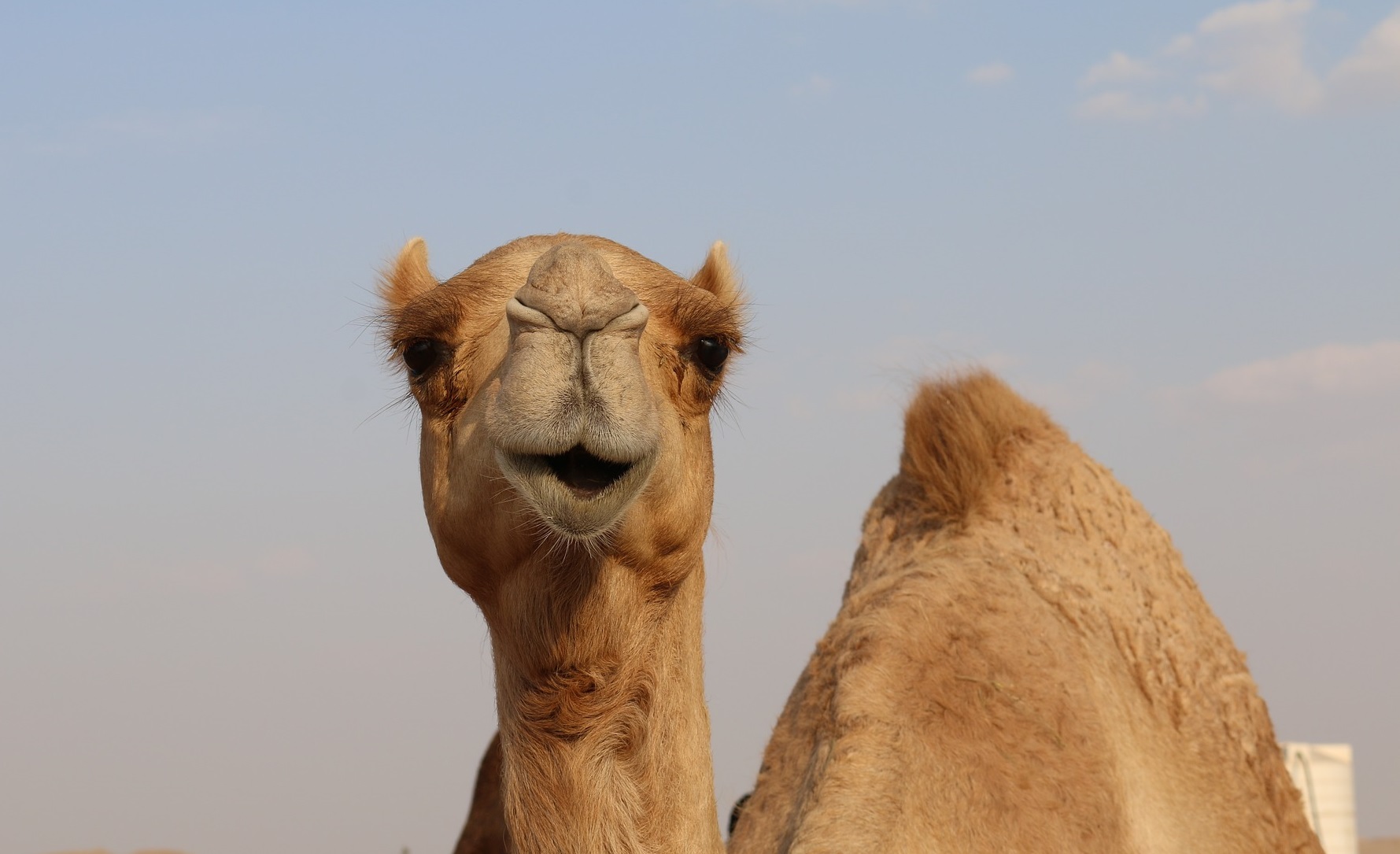What Milk?

The brand, called Camelicious, is owned by HH Sheikh Mohammed bin Rashid Al Maktoum, vice president and prime minister of the UAE and ruler of Dubai. His camel mega-dairy farm houses over 5,500 camels in the middle of a desert. The camels live in open-sided sheds with small sandy areas outside, everything perfectly fenced off and bare. Nothing to do, nowhere to go.
The camels are milked in a specialised milking parlour, some of them clearly pregnant, but no calves or youngsters in sight which begs the question – what happens to the calves? The females are likely kept to replace their mothers, whilst males might be sold for meat, labour or breeding. Apparently, camel meat from young animals is superior so it’s an easy guess where most of the calves disappear. After all, just like dairy cows, camels have to be re-impregnated to keep producing milk. Over the course of the year after giving birth, milk production gradually declines so repeated pregnancies are essential if the farmer is to profit from selling their milk.
And as for the health claims? Camel milk contains less saturated fat and cholesterol than cow’s milk but as most people consume low-fat milk anyway, no miracles there. These two health-detrimental fats are still present in camel milk and we have no dietary need to consume them. Another claim is that camel milk has slightly more vitamin C than cow’s milk but both milks only contain minuscule amounts, so this inflated claim is laughable too. Camelicious also boasts that camel milk is an option for people with lactose intolerance and even allergic to dairy – it’s true some people tolerate it better than cow’s milk (many don’t) but that doesn’t make it any more natural for humans! Add to that that many of the camels are pregnant when milked, which increases the levels of hormones in their milk, including oestrogen and progesterone which are linked to breast and prostate cancer – you get the picture. It’s no miracle drink!
Camel dairy farms are no better than cow dairy farms and the animals suffer a similar fate, including forced removal of their young, repeated pregnancies and severely restricted movement. Camel milk is no more natural for us to drink than cow’s milk so you’re better off without it. Plant milks are always a healthier, ethical and sustainable choice.
